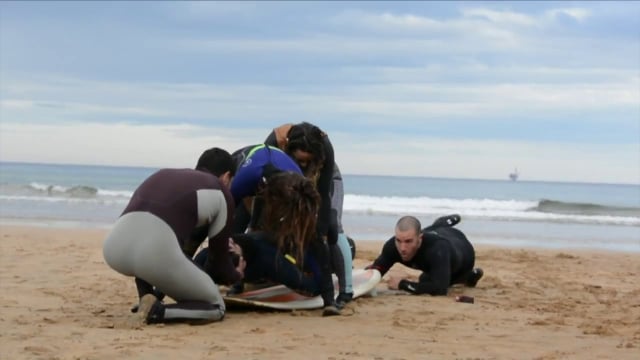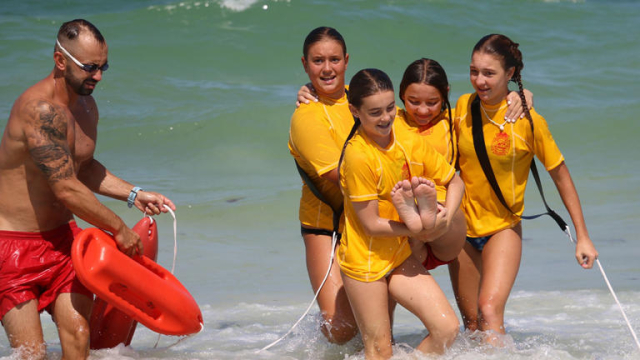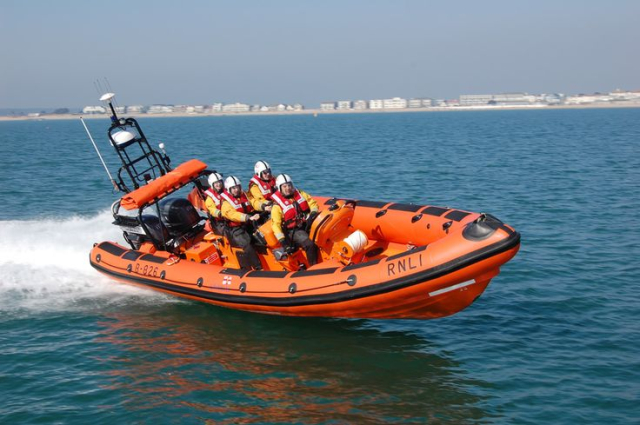The sea is a wonderful environment that offers countless opportunities for adventure and relaxation. Whether you are renting a boat to explore hidden coasts and coves, or enjoying a tour of exotic beaches and islands , the experience can be extraordinarily rewarding. However, to ensure that these activities are safe and enjoyable, it is essential to be well prepared and cautious for any emergency situation .
The sea, although beautiful, can be unpredictable and present unexpected risks . Sudden changes in weather, strong currents, and mechanical problems with the boat are just some of the possible emergencies you could face. Proper preparation and knowledge of basic first aid can make the difference between a manageable situation and a tragedy.
Being cautious not only means wearing the right equipment, such as life jackets, emergency radios and first aid kits, but also having a clear action plan and knowing basic rescue and assistance techniques . Additionally, it is important to become familiar with the marine environment , understanding currents, tides and other possible local hazards. Adequate prevention and preparation allow you to enjoy the sea with greater confidence and peace of mind . Knowing that you are prepared to face any eventuality not only increases your safety, but also improves your enjoyment , allowing you to make the most of every moment of your walk or sea tour.
You may also be interested in: Safe boats for older adults
Basic first aid at sea
- Prevention: it is essential before embarking on any marine adventure. Always wear life jackets when swimming or boating, as these devices can save lives in unexpected situations, such as falls into water or strong currents. Additionally, it is crucial to become familiar with the environment, understanding currents, tides and possible local hazards, to anticipate and avoid risks. Taking these precautions not only increases your safety, but also allows you to enjoy the tour with greater peace of mind and confidence, ensuring that your experience at sea is as pleasant as it is safe.
- Stay calm: The first and most important thing in any emergency is to stay calm. Serenity will allow you to evaluate the situation objectively and act effectively. Losing your cool can lead to hasty decisions that could make the situation worse. Remember that your calmness will influence others, especially if they are panicking. Staying calm is the crucial first step in handling any emergency at sea.

You may also be interested in: What to do in case of emergency on a boat?
- Assess the situation: Before intervening, it is vital to assess the situation to ensure that you are not putting yourself in danger. Observe your surroundings and determine if the sea is too rough or if there are dangerous currents. This evaluation will allow you to decide if it is safe to act or if it is better to wait for professional help to arrive. Identifying risks will help you plan a safer and more effective intervention.
- Call emergency services: As soon as possible, call local emergency services. Provide all relevant information such as the exact location and nature of the emergency. Doing this quickly can make all the difference in the response and effectiveness of the rescue. Keep communication clear and concise so emergency services can act efficiently and arrive on time.
- Flotation and rescue: If you decide to enter the water, always use a flotation device, such as a life preserver or buoy. This will help you stay afloat and assist the victim without putting your life in danger. Do not swim directly toward the victim, as a panicked person may grab you and pull you under. Instead, throw a floating object that the victim can grab and guide them to safety.
You may also be interested in: Recommendations to avoid accidents at sea
- Safe approach: If you need to approach the victim, do so from behind to avoid being grabbed in a panic. Maintain constant communication with the person, talking to them to calm them and guide them. A safe boarding ensures that you are both safe and reduces the risk of the situation escalating due to panic or sudden movements.
- First Aid on shore: Once on shore, check to see if the person is breathing and has a pulse. If not, start CPR (Cardiopulmonary Resuscitation) if you know how to do it. If the person is unconscious but breathing, place them in the recovery position to keep the airway open and prevent suffocation. Keeping the person warm by wrapping them in a blanket or dry clothing is crucial to preventing hypothermia.
- Wound care: Clean cuts and scrapes with clean water if possible, and apply direct pressure with a clean cloth to stop bleeding. In case of jellyfish stings, wash the affected area with salt water and apply vinegar to neutralize the poison. Do not rub the bite, as this can make the situation worse. Properly treating wounds minimizes the risk of infections and complications.
Organizations and Maritime Authorities to go to

- Coast Guard
The Coast Guard is the main organization in charge of safety and rescue at sea. They have the ability to respond quickly to emergencies and offer medical and technical assistance. In many countries, you can contact them directly through maritime emergency channels such as VHF channel 16.
- Red Cross of the Sea
The Red Cross has divisions specialized in lifesaving and maritime rescue. They offer training in first aid and water rescue, and can provide assistance and resources in emergency situations at sea.
- Port authorities
Local port authorities are responsible for security in ports and coastal areas. They can provide information on local sea conditions, and coordinate rescue and assistance operations in their jurisdiction.
- Maritime emergency services
In many countries, there are specialized maritime emergency services that can be contacted through specific emergency numbers. These services coordinate with the Coast Guard and other organizations to provide a rapid and effective response.
You may also be interested in: What to do if I find the Portuguese Frigate?
- International Maritime Organization (IMO)
The IMO is a specialized agency of the United Nations that is responsible for global maritime safety and security. Although it does not respond directly to emergencies, it establishes international standards and guidelines for safety at sea.
- Maritime Rescue
In several countries, there are organizations dedicated exclusively to maritime rescue, such as the Maritime Rescue and Safety Society (SASEMAR) in Spain. These organizations have specialized equipment and are trained to perform rescues in extreme conditions.
- Local health authorities
Local health authorities can provide emergency medical assistance and arrange transportation of injured people to medical facilities. It is important to know how to contact these services in case of emergencies that require immediate medical attention.
- Nautical Clubs and Marinas
Local yacht clubs and marinas are good contact points for information and assistance at sea. They can offer basic first aid and coordinate with emergency services if necessary.
- Diving and rescue organizations
Organizations such as the Professional Association of Diving Instructors (PADI) and other diving associations offer training in water rescue and first aid, as well as providing resources and assistance in emergency situations.
We invite you to take a look at other articles at: https://yate.co/es/blog




